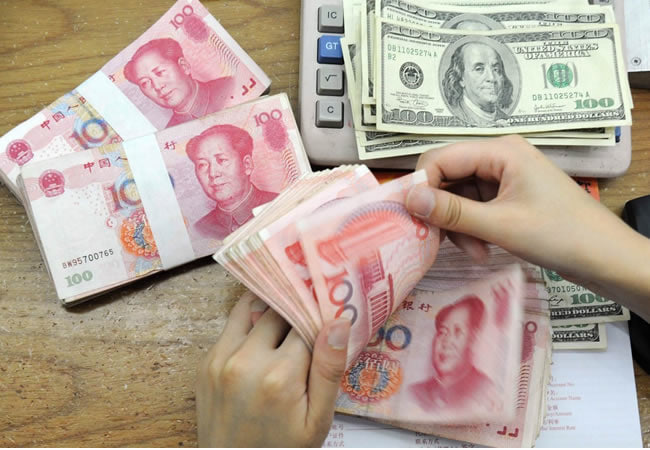港股震荡:政策利好与地缘风险角力下的市场博弈
元描述: 港股今日震荡,恒指险守21000点,本文深入分析市场交投萎缩、增量政策、地缘风险、宏观数据等因素对港股的影响,并预测未来走势,包含阿里巴巴、腾讯、美团等个股分析。
Wow, what a day in the Hong Kong stock market! It's been a rollercoaster ride, a real nail-biter, leaving many investors on the edge of their seats. Today's session saw the Hang Seng Index (HSI) clinging precariously to the 21,000-point mark, finishing down a rather significant 0.75%. The Hang Seng China Enterprises Index (HSCEI) wasn't faring much better, dipping 0.54%, while the Hang Seng Tech Index took a more substantial hit, plummeting 1.43%. But hey, don't let the numbers fool you – beneath the surface lies a complex interplay of factors, a fascinating strategic dance between policy boosts, geopolitical jitters, and the ever-shifting sands of investor sentiment. This isn't just another market report; it's a deep dive into the heart of the action, offering insights gleaned from years of experience navigating the volatile waters of the Hong Kong stock market. We'll unpack the day's events, examining the key players, the winning and losing sectors, and, most importantly, what it all means for you, the astute investor. Get ready to unravel the mysteries behind the numbers, because we’re about to uncover some truly compelling narratives! We’ll be looking at the impact of shrinking trading volume, the role of government stimulus packages, the influence of escalating geopolitical tensions, the significance of recent macroeconomic data releases, and what it all means for foreign investment in Chinese stocks. Buckle up, it's going to be a wild ride!
市场交投萎缩及情绪转淡:恒指短线原地踏步
Today's trading volume painted a rather bleak picture. The HSI saw a total turnover of HK$277.073 billion – a significant drop compared to the peak of HK$620.438 billion just a few sessions ago on October 8th. This represents a near halving of trading activity, a clear indication of waning investor enthusiasm. This drop off in trading volume, coupled with a slight increase in short selling (around 9.31%), points to a market that's currently treading water, struggling to find a clear direction. The air of uncertainty is palpable, a stark contrast to the more bullish sentiment witnessed just a week prior. This subdued market activity wasn’t unexpected, given the recent volatility. However, the extent of the decline is noteworthy and suggests a cautious approach from investors. This "wait-and-see" attitude is likely fueled by a number of factors we'll explore later, including upcoming economic data releases and continuing geopolitical uncertainty.
Several tech giants took a beating today. Meituan, a prominent player in the online services sector, experienced a significant drop exceeding 5%. Baidu and Alibaba also felt the pressure, closing down nearly 3% and showing notable losses respectively. This widespread decline among tech companies highlights broader market concerns, likely reflecting anxieties about regulatory changes and slowing economic growth. Tencent and Xiaomi also saw declines, though less severe than their peers. This sell-off underlines a prevailing sense of caution among investors, prompting many to take profits or reduce their exposure to riskier assets.
增量政策及地缘风险:周期股板块逆势上涨
Interestingly, while the tech sector struggled, certain cyclical sectors bucked the overall trend. Thanks to supportive government policies aimed at stabilizing the economy, particularly the property market, we saw a surge in banking and real estate stocks. The Ministry of Finance's recent announcement, emphasizing the use of special local government bonds, dedicated funds, and tax policies to support the property market, provided a considerable boost to these sectors. This injection of government funds is a clear sign that Beijing is actively working to address economic challenges and stabilize growth. The move to issue special government bonds to bolster the capital of major state-owned commercial banks is another crucial step in strengthening the financial system's resilience.
However, it's not just domestic policy driving the market. Geopolitical factors—specifically, the escalating tensions in the Middle East—are also playing a significant role. The price of gold, a traditional safe haven asset, jumped, reflecting investor anxieties about geopolitical instability. Furthermore, the rising price of oil and increased shipping costs, as evidenced by new rate hikes announced by shipping giants like Maersk, gave a boost to related sectors. This is a classic example of how geopolitical events can create ripples across global markets, with investors seeking refuge in assets perceived as less risky in times of uncertainty. This effect is particularly pronounced in cyclical sectors, as their performance is inherently sensitive to global economic conditions and shifts in investor sentiment.
宏观经济数据:回调后的外资抄底
The release of two key macroeconomic data points today provided further food for thought. September's export growth slowed to 1.6%, and the money supply figures showed a slowing in the growth of M2, while M1 actually contracted. While these numbers may appear somewhat concerning at first glance, it's crucial to remember that the full impact of recent government stimulus measures is likely to manifest in subsequent data releases. It takes time for such policies to filter through the economy and produce a noticeable effect on key indicators. Furthermore, the recent market correction – a healthy response to overbought conditions – may be creating opportunities for shrewd investors.
Despite the recent sell-off, several foreign institutions are expressing optimism about the long-term prospects of Chinese stocks. Major investment banks, such as Bank of America, are recommending buying the dip, anticipating increased allocation to Chinese assets. This confidence in the Chinese market, from both domestic and foreign investors, underscores an underlying belief in the country’s resilience and its long-term growth potential. It seems that many see the current market volatility as a temporary setback, an opportunity to secure assets at attractive prices before a potential rebound. The confluence of these factors, including government support, strategic foreign investment, and a potential bottoming out of the market, sets the stage for a potentially exciting period ahead.
阿里巴巴、腾讯、美团等个股表现分析
Let's drill down on some specific stocks. 阿里巴巴 (BABA), a titan of the e-commerce world, experienced a decline, largely mirroring the broader market trend. Its performance reflects the prevailing uncertainty in the tech sector, compounded by concerns about regulatory scrutiny and macroeconomic headwinds. Similarly, Tencent, another tech giant, saw a dip, echoing the struggles faced by its peers. However, its substantial market capitalization and diversification across various sectors provide a degree of resilience. Meanwhile, Meituan, focusing on online services, was hit particularly hard, likely due to increased competition and concerns surrounding its business model. While these stocks experienced setbacks today, their long-term prospects remain tied to the overall health and growth of the Chinese economy, making them interesting candidates for long-term investors with a higher risk tolerance.
The daily fluctuations in these stocks are just that: daily fluctuations. They're a part of the normal ebb and flow of the market. What matters more is the underlying strength of these companies, their ability to adapt to market changes, and their potential for long-term growth. Smart investors assess these factors rather than reacting solely to short-term market noise.
常见问题解答 (FAQ)
Q1: Is the current market downturn a cause for concern?
A1: While the recent market correction is noticeable, it's important to consider it within the broader context of economic conditions and government policy. While short-term volatility is expected, the long-term outlook remains tied to fundamental economic factors and the effectiveness of government stimulus programs.
Q2: What are the key factors influencing the current market sentiment?
A2: Market sentiment is a complex interplay of several factors, including macroeconomic data, government policies, geopolitical events, and investor confidence. The recent release of economic data, coupled with ongoing geopolitical tensions, has contributed to the current cautious sentiment.
Q3: Should I be selling my Hong Kong stocks?
A3: Whether or not you should be selling depends entirely on your investment strategy and risk tolerance. This is not financial advice, but a reminder that short-term market fluctuations are normal. Long-term investors should focus on the overall health and potential of their chosen companies.
Q4: What sectors are expected to perform well in the near future?
A4: Sectors benefiting from government stimulus, such as banking and real estate, are likely to see continued support. However, geopolitical risks could also impact sectors like energy and shipping. Diversification is key.
Q5: Are foreign investors still bullish on the Hong Kong market?
A5: Despite recent market volatility, several foreign institutions remain optimistic about the long-term prospects of the Chinese and Hong Kong markets, viewing the current correction as a potential buying opportunity.
Q6: What should I expect in the coming weeks?
A6: Expect continued volatility in the short term. The market is likely to remain sensitive to macroeconomic data, government policy announcements, and geopolitical developments. This makes maintaining a balanced and diversified portfolio crucial.
结论
The Hong Kong stock market is currently navigating a period of uncertainty, a complex dance between government stimulus, geopolitical risks, and fluctuating investor sentiment. While today's session showed a decline, the underlying fundamentals of the market remain tied to the strength of the Chinese economy and the effectiveness of government support programs. With foreign investors expressing confidence and the potential for further stimulus measures, there's reason for cautious optimism. However, it's crucial to remain informed, monitor market developments carefully, and maintain a diversified investment strategy to mitigate risk. The market is a dynamic entity, and adapting to its fluctuations is key to long-term success. Remember, stay informed, stay diversified, and stay patient!



